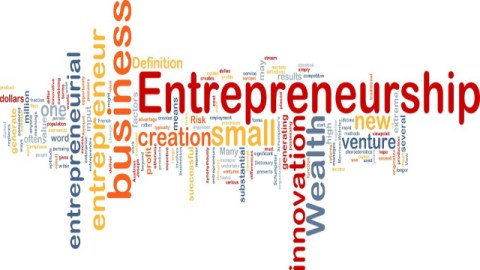“The Machines Have Already Taken Over”: Seven Questions with Brad Feld

The buzz around Facebook’s IPO tomorrow got me thinking about the future of web startups, and of entrepreneurship more generally. To get some clues, I reached out to Brad Feld—a managing director at Foundry Group, a cofounder of TechStars, and an avid marathoner (he has already run 21 marathons), among other titles—who was recently ranked the “most respected venture capitalist.”
I e-mailed him at 5:11pm this Monday to ask if he’d be willing to answer some questions that I had. He replied at 5:14pm: “Go for it!” Beyond being approachable, Brad is refreshingly honest. Here’s our conversation.
POWER GAMES: Are human beings’ needs and desires evolving faster than start-up companies can respond to them? Slower? At the same rate?
BRAD FELD: I think they are independent variables. The quest for stability or homeostasis is silly. We should accept that we live on an incredibly dynamic planet in a rapidly changing environment, and do our best to have the most amazing experiences we can.
PG: What challenges should startups be tackling that they’re not?
BF: I don’t think enough people have accepted that the machines have already taken over. They are patiently waiting for us to catch up with them. The next time you are in front of your computer, notice how much information you are entering into it. It’s unclear whether we will have a computer-enhanced human future or a human-enhanced computer future, but it doesn’t matter. Our world is now interdependent with the machines, and more entrepreneurs should be working on the symbiosis between the two entities.
PG: Alex Madrigal recently argued that “[t]housands of startups are doing almost exactly the same thing, minor variations on a theme….But fascinating technology startups, companies who want to allow regular people to do new stuff in their daily lives? Few and far between.”
How do you respond?
BF: Boring dreck about that gets pounded out regularly by mainstream media. There is so much amazing stuff going on all over the world. Why worry about the media echo chamber?
PG: It has become increasingly common to argue that while we communicate more with each other in the Internet age, the quality of that interaction has diminished significantly. Do you agree? If yes, what’s to be done? If no, why not?
BF: I disagree. I have many more substantive conversations than I ever had before. I communicate, generate, and consume information via many channels, and am a much more active participant in discussions than ever before. Oh, and I no longer sit around passively and watch TV. I’d much rather interact with other people.
PG: What’s Brad Feld’s vision for Web 3.0? Web 4.0?
BF: I’ve never liked the construct of “Web 2.0.” I’ve been a user of the Internet since the 1980s, when I was an undergraduate at MIT, and have been investing in and helping create Internet- and Web-related companies since 1994. I view it as a continuum of innovation that is vibrant and chaotic, not a cleanly demarcated set of categories.
PG: You’ve been an early-stage investor and entrepreneur for 25 years. Of the successful startups that you’ve funded or otherwise engaged, are there common characteristics?
BF: Complete and total product obsession by the entrepreneur at the early stages. As the company grows, the “company” becomes the product that the entrepreneur is obsessed about. This “product obsession” and passion continue—forever. If they ever start to dim, that’s a sign that you are in trouble.
PG: Punching in “cliché” into the search bar of your website turns up 40 hits. What clichés and buzzwords should entrepreneurs avoid?
BF: When everyone starts sounding the same, that’s when you know the words and phrases have become clichés. Right now, “everyone” is “killing it,” so whenever someone tells me they are killing it, I’m immediately suspicious. Instead of speaking in clichés, I encourage people just to be themselves, let their passion burn brightly, and go work on things they love spending their time on.
Follow Ali Wyne on Twitter and Facebook.
Photo Credit: Kheng Guan Toh/Shuttershock.com





